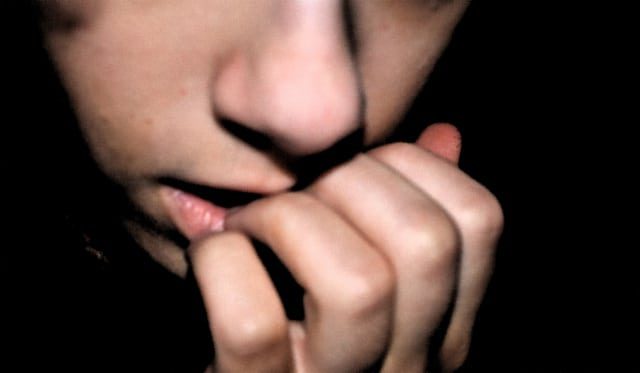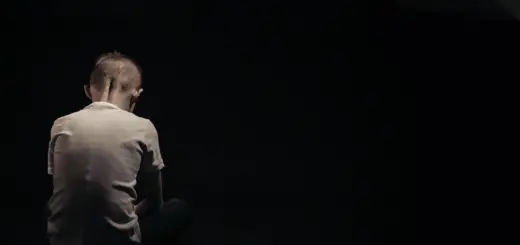How to Explain Social Anxiety?
Mom, I don’t want to attend the wedding ceremony, whined Sobia. “But why?” asked her mother. “Because–Because I hate people”. A normal conversation is it— right? Wrong. The secret fear hidden in the complaint of the child is social anxiety, a term which is unknown to the majority of the people. Social anxiety or social phobia is a term used to describe an experience of fear, worry or nervousness regarding social situations of being gauged by other people. It is an amount of fear in one or more social situations, triggering substantial distress and diminished ability to function. It usually occurs in early childhood as a normal part of social situations which are unfamiliar and one feels that one is being watched. Occasional shyness or nervousness does not necessarily mean you suffer from social anxiety because there are certain phobias which are (pounding heart, shaky Voice, rapid breathing, panicking, dry mouth, quaking, shaking, twitching, faintness, blushing and clammy hands).
Social phobia victims find it challenging to mix and socialize with other people and when for instance they have to get up and talk or perform in front of others they become very nervous, stammer or dry up completely. It can affect even people who are expert at speaking in public.  At its worst it can make it difficult to express in public, even to ask a question. Many social phobia victims experience a panic attack. This is a short period, usually only a few minutes, during which you may feel over whelming anxious, petrified of losing control. Although these attacks are very disturbing, they do end on their own and cannot hurt physically.
At its worst it can make it difficult to express in public, even to ask a question. Many social phobia victims experience a panic attack. This is a short period, usually only a few minutes, during which you may feel over whelming anxious, petrified of losing control. Although these attacks are very disturbing, they do end on their own and cannot hurt physically.
Sobia, a 25- year old graduate, ascertains this to be the most problematic when her social phobia kicks in. she fears she will do or say something to mortify herself and would be judged by others for the mistakes she makes. She can never relax in other people company. Similarly, Ali – a student and usually skips classes. It is the first day of the new semester and he is terrified that the professor will go around the class and have the students introduce themselves. He knows it shouldn’t be a serious issue, but it really stresses him out. Whenever he has to speak in front of more than just a few people, his voice starts shaking and his face gets reddened. He always feels so demeaned afterward. Since public speaking is Ali’s worst nightmare, he avoids a speech class he has to take in order to graduate. For many of us the speech on the stage, a get together with friends or a party such sort of moments are agonizing. Those who are victims of social phobia are always on the look out to find a way out of such situations.
According to Psychiatrists, Social anxiety disorders, social phobias, obsessive compulsive stress, panic disorder, post-traumatic stress and depression are one of the major psychological predicaments. In Pakistan, many people suffer but they do not take it seriously especially females. Similarly, in the rural areas, the illiteracy rate is high and students have to migrate to the city that is a completely new environment where they are considered backward and teased. As the peer pressure builds up they begin to prefer seclusion and avoid public gathering. Moving from one place to another is not a piece of cake, especially when you become so used to the surroundings. Having had to move from one side of the world to the other is not easy. From language differences to the lifestyle, in fact, you have to transform completely. So those who migrate have to face both positive and negative perception. But, is there anything we can do to prevent this? Is there anything we can adopt to help those who are victims? Yes we can by adopting the following measures:
Avoid Anxiety Triggers: Many physical changes occur in our body when we become anxious. The level of oxygen and carbon dioxide become disturbed. In order to avoid such cases, one should sit comfortably and to breathe in through the nose for four counts, hold it for seven counts, and then breathe out. Breathing in this way can help to ease the muscles and provide a comfortable diversion from an anxiety.
Cognitive Behavioral Therapy: The cognitive portion tries to modify the negative thinking patterns. These patterns have a direct effect on how a person feels in certain situations. So, Social phobia sufferers have negative thoughts which may be like “I know I’ll end up looking like a fool”, “I think I should not attend”, “I am looking idiot”, “People will think I am stupid”, “My voice will start shaking and I will humiliate myself”. The behavioral portion is to avoid negative social thoughts and to overcome symptoms of social anxiety. This is very challenging it has a direct effect on how a person feels it in certain situations. The first thing is to identify negative thoughts and then to analyze and challenge the situation. Through this evaluation, you can gradually replace the negative thoughts with positive ones.
Exposure Therapy: Avoiding social situations keeps the disorder going, so the best alternative is “exposure therapy” in which you face the situations you fear. It may seem impossible but the key is to take it one step at a time. Start with a situation you can handle and work your way up to more challenging situations building your confidence as you move up the “anxiety ladder”. Since the disorder succeeds in early childhood it is important for parents to make sure that the surroundings of the child are favorable for his growth both physically and mentally and also he/she receives the right amount of love and care along with the required discipline.
As we know that, no one is born confident, we have all been in those awkward situations and have had our share of humiliations but this doesn’t mean that we have to let it be that way. A positive attitude and little determinations can go along the way to overcome this syndrome. Because psychotherapy and medications can help somewhat but if you want to beat social anxiety you have to develop new balanced and healthy thoughts. Yes, it is very true that changes do not happen overnight but you should believe in your capacity.
- Concept of “U” Theory and CPEC under Pakistan’s New Leadership - August 25, 2018
- Heterodoxy in Conflict Resolution“Vanni” in Pakistan - March 23, 2018
- Valentine day! Should be an Issue or a Non-Issue? - February 12, 2018



nyc article
Superb?
Nice..
Very well written according to current scenarios. I just want to say onething please shed more light on the Pakistan’s perspective since this is very important and we want to learn more about social disorders which are existing in our society.